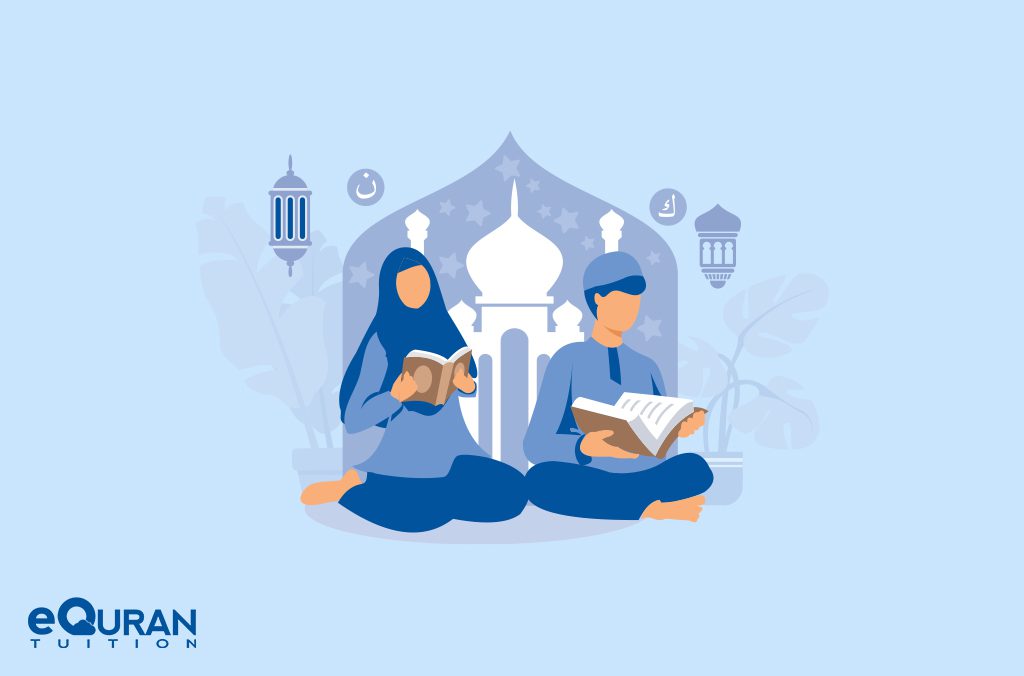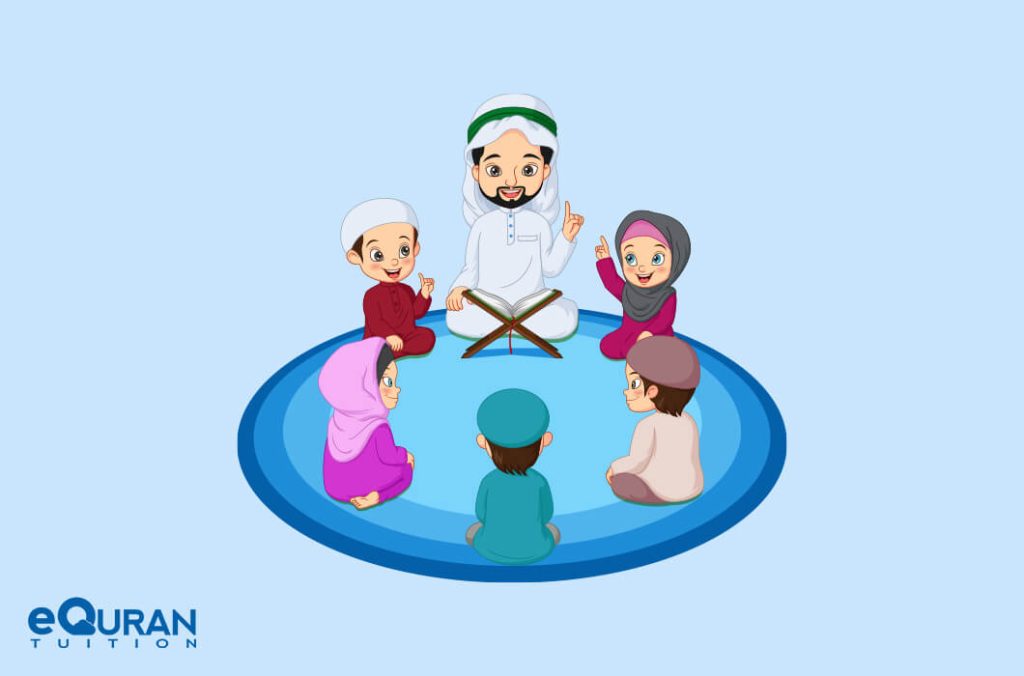
In our study of the Quran, which is the holy book of Islam, we’ll explore its core teachings, structure, and lasting importance. This blog provides a concise but deep look into the Quran, including its main themes, structure, and enduring importance.
Throughout this journey, we’ll discover the timeless values, key stories, and moral foundations within the Quran, as well as appreciate its linguistic elegance and relevance in today’s world.
What is the Quran, and What is Its Significance in Islam?
The Quran, often spelled as Qur’an, is the holy book of Islam, believed by Muslims to be the literal word of God (Allah) as revealed to the Prophet Muhammad ( PBUH ) through the angel Gabriel (Jibril). It is written in Arabic and is considered the ultimate source of guidance and law for Muslims.
The Quran covers various aspects of life, including morality, spirituality, guidance for personal conduct, and legal principles. It holds immense significance in Islam as it is the primary source of religious knowledge and forms the basis for Islamic beliefs and practices.
What Are the Main Themes of the Quran?
The Quran covers a wide range of themes and topics, including the oneness of God, the importance of faith and belief, guidance for personal conduct, moral principles, stories of past prophets, the afterlife, and legal matters.
It emphasizes the importance of worshiping Allah alone, living a righteous life, and following the teachings of the Prophet Muhammad.
The Timeless Values of the Quran
The Quran continues to guide and inspire millions of people worldwide with its profound wisdom and ethical principles. Its messages of compassion, justice, and spiritual guidance remain relevant in our ever-changing world, now let’s discuss the timeless values of the Quran.
1. Structure of the Quran
The Quran is divided into chapters called “Surahs” and verses called “Ayahs.” It is important to note that the Quran is not organized chronologically; instead, it is organized by the length of the Surahs, with the longest ones generally found towards the beginning. There are a total of 114 Surahs in the Quran, with varying lengths, ranging from a few verses to over 100.
2. Key Themes of the Quran
Monotheism (Tawhid):
One of the central themes of the Quran is the concept of monotheism or Tawhid. Muslims believe in the absolute oneness of God (Allah in Arabic) and reject any form of polytheism or associating partners with God. The Quran emphasizes that God is the sole creator, sustainer, and judge of the universe.
Prophethood:
The Quran acknowledges a long line of prophets who were sent by God to guide humanity. It emphasizes the role of these prophets, including Adam, Abraham, Moses, and Jesus, as well as the final prophet, Muhammad (peace be upon him). Muhammad is considered the Seal of the Prophets, and his message is believed to be the final and complete revelation from God.
Guidance and Morality:
The Quran provides comprehensive guidance on how to live a virtuous and righteous life. It outlines moral and ethical principles, such as honesty, compassion, justice, and humility. It also contains laws and guidelines for various aspects of life, including family, social, and economic matters.
Day of Judgment:
The Quran frequently mentions the Day of Judgment, a time when all individuals will be resurrected and held accountable for their deeds. Depending on their actions and faith, people will either be rewarded with paradise or punished with hellfire.
Mercy and Forgiveness:
While the Quran emphasizes justice and accountability, it also underscores God’s mercy and forgiveness. It encourages believers to seek God’s forgiveness and repent for their sins, as God is often described as the Most Merciful and Most Forgiving.
3. Major Stories and Figures in the Quran
The Quran contains numerous stories of past prophets, nations, and individuals. Some of the most notable ones include:
The Story of Adam and Eve:
The Quran narrates the story of the first human beings, Adam and Eve, and their creation, temptation, and expulsion from paradise. This story serves as a lesson about the consequences of disobedience and the importance of repentance.
The Story of Noah (Nuh):
The Quran tells the tale of the prophet Noah, who built an ark to save believers and animals from a catastrophic flood sent by God as a punishment for the wickedness of his people.
The Story of Abraham (Ibrahim):
Abraham is a prominent figure in the Quran, known for his unwavering faith and devotion to God. The Quran describes his challenges, including the near-sacrifice of his son Ishmael, as a test of his faith.
The Story of Moses (Musa):
The Quran recounts the life of Moses, who was chosen as a prophet to lead the Israelites out of slavery in Egypt. It includes the famous story of the parting of the Red Sea and the delivery of the Ten Commandments.
The Story of Jesus (Isa):
The Quran acknowledges Jesus as a prophet and the Messiah but rejects the idea of his divinity. It narrates the miraculous birth of Jesus and his mission to guide the Children of Israel.
4. Quranic Ethics and Values
The Quran lays down a comprehensive ethical framework that covers various aspects of life. Some of the key ethical principles and values promoted by the Quran include:
Justice
The Quran insists on the importance of justice in all matters, emphasizing the equitable treatment of all individuals, regardless of their background or status.
Compassion and Charity:
Muslims are encouraged to show compassion and generosity towards those in need. The Quran advocates for the concept of Zakat (charity) and highlights the significance of helping the less fortunate.
Honesty and Truthfulness:
The Quran prohibits lying, deceit, and dishonesty. It stresses the value of honesty in personal and business dealings.
Humility and Gratitude:
Believers are encouraged to maintain a sense of humility and gratitude towards God for His blessings and to avoid arrogance and pride.
5. Linguistic and Literary Aspects
The Quran is renowned for its eloquence and linguistic beauty. It is written in classical Arabic and is often considered the highest form of Arabic literature. The Quran’s unique literary style, characterized by its rhythmic prose, metaphors, and vivid imagery, has captivated readers for centuries.
6. Preservation and Recitation
One of the remarkable features of the Quran is its preservation. Muslims believe that the Quran has been preserved in its original form since it was revealed to the Prophet Muhammad (peace be upon him). The practice of memorizing the entire Quran, known as Hifz, is highly esteemed in Islamic culture, and many Muslims around the world commit the entire text to memory.
Recitation of the Quran holds a special place in the lives of Muslims. It is common for Muslims to recite the Quran daily in their prayers and to seek spiritual solace and guidance through its verses.
7. Contemporary Relevance
The Quran is not just a historical or religious text; it remains highly relevant in the lives of Muslims today. It provides guidance on contemporary issues such as social justice, ethics in business, family life, and environmental responsibility.
Many Muslim scholars and leaders turn to the Quran for insights into addressing modern challenges.
Can Translating the Quran Yet Maintaining its Authority Possible?
The Quran has been translated into numerous languages to make it accessible to non-Arabic speakers. However, it is essential to note that while translations can convey the meanings of the Quranic verses, they are not considered equal to the original Arabic text.
The Quran is believed to have a unique linguistic and spiritual quality in its original Arabic form, and Quranic translations may not fully capture these aspects. Muslims regard the Arabic text as the authoritative version, and translations are seen as aids for understanding, but not as a replacement for the original Quranic text.
Therefore, when studying the Quran in-depth or for religious purposes, scholars and believers often refer to the Arabic text alongside translations for a more comprehensive understanding.
Conclusion:
In summary, the Quran is the holy book of Islam, believed to be the literal word of God as revealed to the Prophet Muhammad. It serves as a guide for over a billion Muslims worldwide. This blog provided an overview of the Quran’s significance, themes, structure, and relevance.
The Quran covers diverse themes, including monotheism, prophethood, guidance, morality, the Day of Judgment, and mercy. It contains stories of past prophets and figures like Adam, Noah, Abraham, Moses, and Jesus. The Quran also emphasizes ethical values such as justice, compassion, honesty, and humility.
In today’s world, the Quran continues to offer guidance on contemporary issues, making it a living source of wisdom for Muslims. When studying it, scholars and believers often refer to the Arabic text alongside translations for a comprehensive understanding.
FAQs:
Q: Is it permissible for non-Muslims to read the Quran?
Non-Muslims are allowed to read the Quran to gain an understanding of Islamic beliefs and teachings. Many translations of the Quran are available to facilitate this.
Q: Do Muslims need to perform ritual purification (Wudu) before touching or reading the Quran?
While it is considered respectful for Muslims to be in a state of ritual purity (Wudu) when handling the Quran, it’s not an absolute requirement for all situations. Some Muslims may choose to do so out of reverence, but it’s not a strict prerequisite for reading or touching the Quran in all cases.
Q: Are there any specific guidelines for Muslims on how to approach reading and studying the Quran?
Muslims are encouraged to approach the Quran with a sincere and humble heart, seeking guidance and understanding. It’s common to say a short prayer for guidance before beginning to read, and it’s important to read it with respect and reverence.
Q: What is the significance of the Quranic recitation during Islamic prayers (Salah)?
During Islamic prayers (Salah), Muslims recite portions of the Quran, typically in Arabic. This recitation serves as a direct connection with God, reinforcing the importance of the Quran in the daily spiritual life of a Muslim.
Q: Are there different versions or interpretations of the Quran?
The Quran has only one original Arabic text, and it is consistent across all Muslim communities. However, there can be variations in translations and interpretations of its meaning. Various scholars and schools of thought may have slightly different interpretations of certain verses, but the Arabic text remains standardized and unchanged.

eQuran Tuition is your trusted online institute in the US for expert Quran learning with Tajweed, connecting you with experienced Quran tutors for a meaningful Quranic journey.




